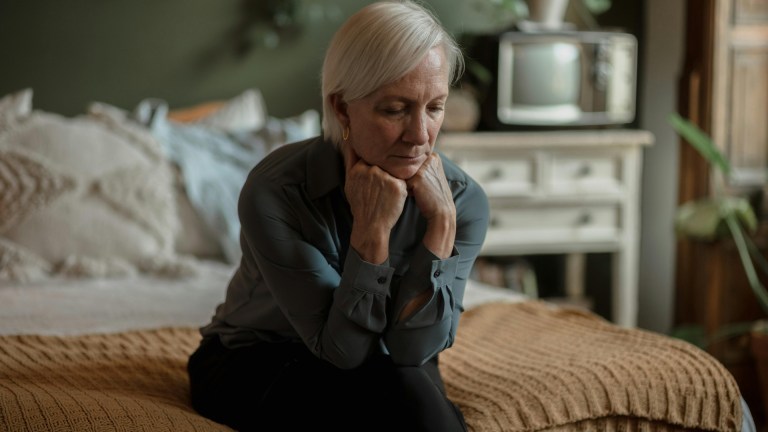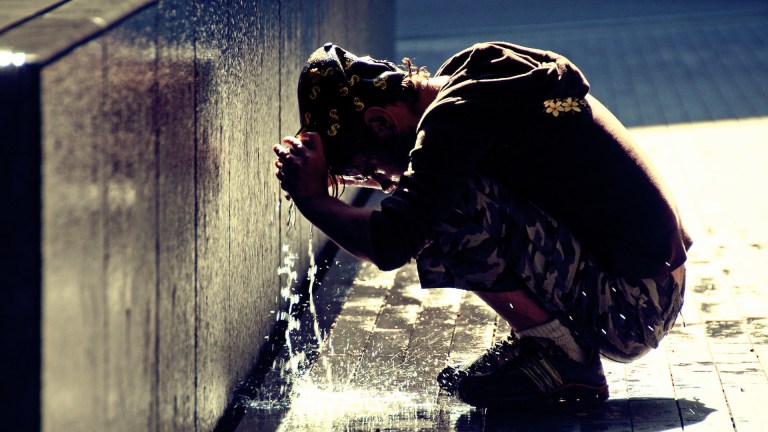“The government has dragged its feet on updating the Decent Homes Standard for the social rented sector and in extending it to cover the private rented sector. We’re calling on the government to set out its timetable for doing so without delay.
“Our report welcomes the government’s plan to introduce Awaab’s Law for tenants in the social sector. We urge swift action on the outcome of the consultation, but the government must also consider safeguards for tenants in the private sector where risks of damp and mould can pose an immediate danger to health.
“Creating healthy places to live to prevent ill-health among the population must take priority for ministers. Not only will that reduce pressures on the NHS but will save vast sums spent each year on treating people with preventable illness.”
The Decent Housing Standard creates a minimum standard for housing and has not been updated since 2006.
It states that homes which contain a category 1 hazard – the most serious issues – are considered non-decent. Homes must also provide a “reasonable degree” of thermal comfort, be in a “reasonable state” of repair and have “reasonably modern” facilities and services.
Currently the Decent Home Standard only applies to social housing but the government is set to extend the regulations to cover private renting tenants through the Renters Reform Bill. MPs called on the government to set out a timetable to extend the standard after private renters have already faced a three-year wait.
Advertising helps fund Big Issue’s mission to end poverty
Private rented dwellings have the highest proportion of non-decent homes with a fifth not up to standard while the social rented sector had the lowest at one in 10, according to the English Housing Survey.
The inquiry concluded that people living in less affluent neighbourhoods are more likely to develop life-limiting health conditions or die prematurely.
Change a Big Issue vendor’s life this winter by purchasing a Winter Support Kit. You’ll receive four copies of the magazine and create a brighter future for our vendors through 2024 and beyond.
Housing hazards such as fire and electrical risks, excess cold, excess heat, air pollution and damp and mould were cited as posing a threat to health.
The Building Research Establishment found that the annual cost to the NHS of leaving people in the poorest housing was around £1.4 billion.
The Health and Social Care Committee also urged the government to require developers to aim higher to protect residents’ health, particularly when converting hotels, hostels and other commercial buildings into housing through permitted development rights.
Advertising helps fund Big Issue’s mission to end poverty
MPs also recommended ministers consult on the content of existing design and space standards as they relate to health.
The government is currently consulting on plans to create Awaab’s Law which could see social landlords legally forced to investigate hazards within 14 days, fixing within a further seven days and making emergency repairs within 24 hours.
The move is part of ministers’ efforts to improve social housing standards following campaigning from activist Kwajo Tweneboa and reporting from ITV News.
A government spokesperson said: “Everyone deserves to live in a safe and decent home. We have already made strong progress on improving housing quality, reducing the number of non-decent homes in all tenures by over two million between 2010 and 2020.
“Our landmark Social Housing Act will drastically improve the quality of life in social housing, granting residents a proper voice to fight those who think they can cheat the system, and Awaab’s Law will force landlords to fix their homes within strict new time limits.
“We are also introducing a Decent Homes Standard to the private rented for the first time, and creating a new ombudsman to resolve issues quicker and empower tenants to challenge poor practice.”
Advertising helps fund Big Issue’s mission to end poverty
Even with the Decent Homes Standard in effect, horror stories around the state of social housing continue to be revealed.
Tenant left sleeping on floor for months due to damp and mould in their home
This week the Housing Ombudsman detailed a case where a resident living with PTSD was left sleeping on the floor for three months after their housing association Torus failed to tackle spreading mould in their home.
During the almost year-long ordeal, the Torus tenant complained of breathing issues, rashes and black mould poisoning. He said he felt he had been living in “third-world poverty conditions” with damp and mould so ingrained in his property that he had to throw out his bed, mattress and other furniture.
The Ombudsman also found the landlord wrongly instructed the resident that he would have to wait for eight weeks before he could take his complaint to the regulator when changes to the law meant that restriction no longer applied.
Richard Blakeway, Housing Ombudsman, said: “The landlord failed to act quickly to replace the resident’s bed, which had been destroyed by damp, leaving him sleeping on the floor.
“Landlords should be empathetic with their residents and investigate and resolve complaints in a timely and effective way. Residents must not be left living in substandard conditions for months before a decant is considered, and any vulnerabilities of the resident must be considered.”
Advertising helps fund Big Issue’s mission to end poverty
The housing association was ordered to pay £2,900 in compensation and apologise to the tenant for its failure in handling the complaint.
A Torus spokesperson said: “This case occurred almost two years ago and has provided Torus with many lessons on how to ensure that the shortcomings are not repeated. We have been proactive and robust in our response and the changes we needed to make.”
Meanwhile, new research has shown nearly 5,000 excess deaths last winter were caused by cold and damp homes, according to the End Fuel Poverty Coalition.
Georgia Whitaker, Greenpeace UK’s climate campaigner, described the figures as a “national scandal”.
Do you have a story to tell or opinions to share about this? We want to hear from you. Get in touch and tell us more.
We’re calling on the prime minister to make sure everyone can afford to stay in their homes and pay for the essentials. Will you join us and sign the petition?
Advertising helps fund Big Issue’s mission to end poverty











